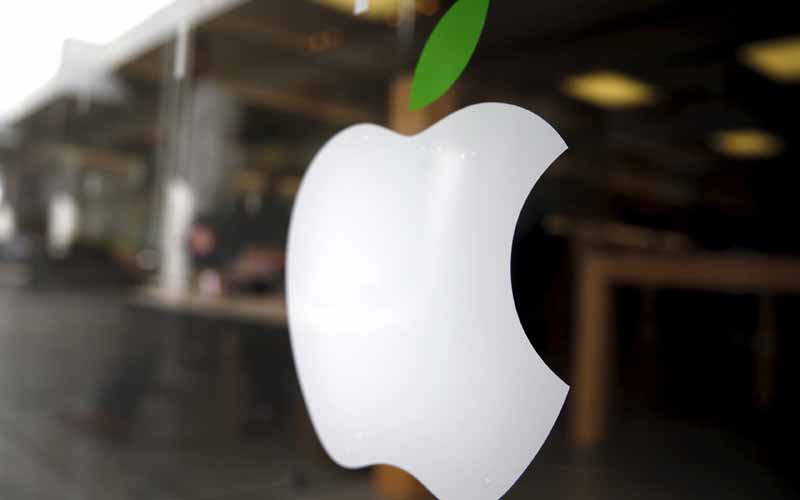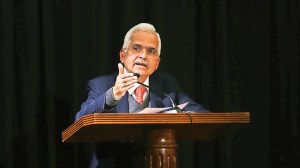Apple’s machine learning system, and why it won’t sacrifice user privacy: Report
Apple has given an insight on how it uses machine learning without compromising user privacy.
 A detailed report by BackChannel has shown how Apple is using its machine learning, without sacrificing user privacy. (Representational Image: Reuters)
A detailed report by BackChannel has shown how Apple is using its machine learning, without sacrificing user privacy. (Representational Image: Reuters)
Machine-learning is the next big thing in technology, and while we’ve been hearing Google and Microsoft go on about how they use it across their products, the other big Silicon Valley player Apple hasn’t exactly been forthcoming about how this. That is until now. Apple’s iOS 10 will see an increased focus on machine learning and AI across the mobile operating system with the voice-assistant Siri getting a lot smarter. We’ve also heard Apple CEO Tim Cook talk about machine learning and the company’s commitment to user privacy during the company’s quarterly results.
Now in an extensive story published on the BackChannel by Steven Levy (read full story on backchannel.com), Apple has given an exclusive insight on how it has been working on machine learning, artificial intelligence for years. The gist of the article is this: Apple wants it known they have been working on machine learning and are not behind as analysts and other claims, and they’ve been doing it in a more subtle way with no grand announcements. And yes, their approach to AI is different where user privacy is still intact, while the machine learning still gets smarter.
The author has spoken to Apple’s senior executives Craig Federighi, Eddy Cue, as well Tom Gruber who is the Advanced Development Head for Siri and Siri’s speech guru Alex Acero for the story. The report says Apple’s overall message on Machine Learning is this “We’re already here. A player. Second to none. But we do it our way.”
It also points out Apple has been using Artificial intelligence across products, some of which might not be in public knowledge. For instance, as the report points out, “Apple uses deep learning to detect fraud on Apple Store,” to pick news stories for users and more. The report also says Apple has been using machine learning since 1990s, and there’s no dedicated team looking solely at AI, but rather Cupertino prefers people from a variety of background for its machine-learning efforts.
Watch our video on Apple iOS 10 beta features
But more importantly for Apple, machine learning is just one of the tools. The report quotes Eddy Cue as saying, “It’s not like there weren’t other technologies over the years that have been instrumental in changing the way we interact with devices.”
The report also highlights how with the iPhone, all machine learning, and AI operations take place on the device with around 200 MB of dynamic cache is dedicated to this. According to the report, “this includes information about app usage, interactions with other people, neural net processing, a speech modeler, and ‘natural language event modeling.’” Apple had also revealed in the iOS 10 keynote at WWDC it would be relying on differential privacy to keep user data secure, even as it uses machine learning to make its products more useful.
Also read: Apple iOS 10 review: More functional, more of everything
Apple’s take on user privacy is what sets it apart from other players, and has always been viewed as a barrier to a potential success in machine learning. Cupertino says it won’t store user profiles in the cloud or on their servers to train its neural networks. Any data collected has mathematical distortions, noise added to it to ensure it can be linked to one individual, and Apple has spoken about the same during the keynote. Though it has never explained at length how it is using this differential privacy.
Read more: Apple iOS 10 at WWDC 2016: Smarter Siri, Messages and other features
But as the BackChannel report points out, Apple uses public information to train its neural networks. According to Apple’s Senior Vice-President Craig Federighi, the idea that AI needs a lot of data is “a false narrative.” The report also reveals how app suggestions which show in the iPhone are computed on the device itself. Also while Apple can figure out calendar events, upcoming flights, the information doesn’t leave the device, unlike say with Google, where the information is stored on the company’s servers.
The Apple VP is also quoted as saying “Apple as a corporation needs to know your habits, or when you go where,” which defines how Cupertino views this whole trade-off between privacy and strengthening machine learning.
Apple’s iOS 10 will roll out this September post the iPhone launch, and will see more implementation of machine learning from Cupertino. For instance, Photos app is set to get smarter with AI and will be able to organise photos based on forgotten events, trips and people, and put them in all in one collection. With Photos, Apple is relying on advanced computer vision, facial recognition techniques, object and scene recognition to create these ‘Memories,’ and says it won’t sacrifice user privacy. Siri will get smarter in iOS 10, and third-party developers can now access Apple’s voice-assistant as well.







